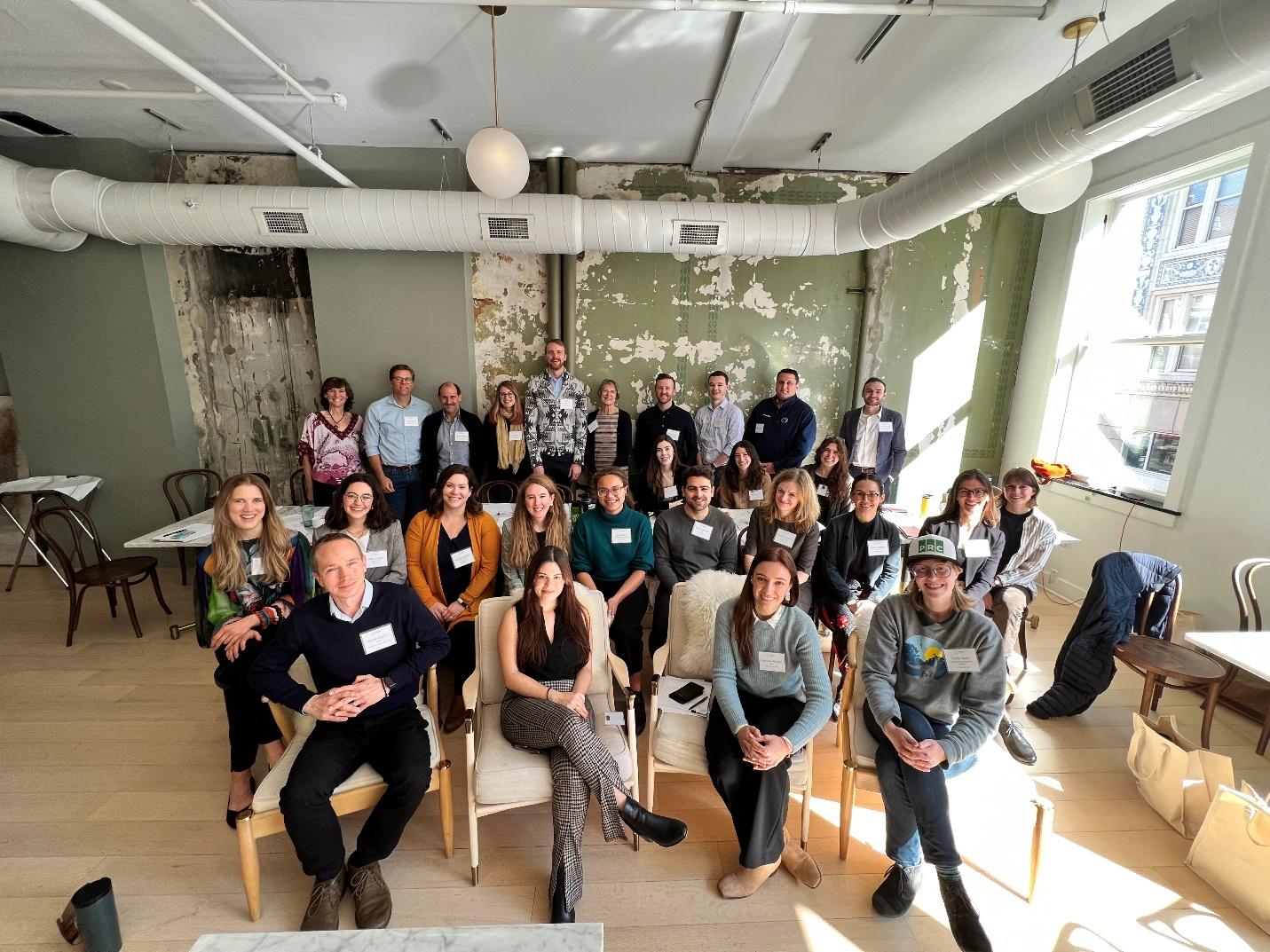
Food Waste Grantee Cohort Convening at the 2023 Food Waste Solutions Summit
2023 - 27 - 07
The Posner Foundation has launched our first-ever cohort of grantees working to prevent food waste by reshaping consumer environments. In this cycle, we received 130 proposals and selected 13 projects to fund. Ten awardees are laser-focused on Reshaping Consumer Environments, and three have a complementary focus, which we’ve called our Food Waste Prevention Partners. All are transforming the way we eat, shop, cook, and interact with food at home, at school, in institutions, and in cities. Thank you to these amazing organizations for their hard work! We are eagerly following their progress on their projects.
Reshaping Consumer Environment Awardees
Banco de Alimentos de Mexico (BAMX) and Waste Resources Action Programme (WRAP) are partnering on a consumer education campaign in Mexico that will shift cultural and social norms and spark widespread uptake in preventive behaviors that reduce food waste and encourage better food management. Pacto Por La Comida (PPLC), the first voluntary agreement for food loss waste reductions in Latin America, will provide the framework for the project. PPLC is managed by BAMX with support from WRAP and RPM Sustainability Consulting.
The Chef Ann Foundation is launching a pilot project, Bulk Milk in Schools, to help school districts nationwide transition from conventional milk in individual containers to bulk milk dispensers. A USDA report found nearly 30% of school milk cartons are thrown away untouched, and studies supporting the transition from single-use cartons to bulk milk dispensers represent opportunities to reduce food, energy, and packaging waste while providing substantial cost efficiencies for food programs.
The World Wildlife Fund is launching a consumer-facing food waste reduction campaign for the Hospitality and Food Service (HaFS) industry in collaboration with the American Hotel and Lodging Association and major hospitality brands, and in partnership with Ziba Design.
Urban Green Lab is continuing and expanding its work through the Nashville Food Waste Initiative, a program in partnership with NRDC and the Environmental Law Institute, which focuses on community food waste prevention in schools, workplaces, and households.
Busara Center for Behavioral Economics is taking a behavior science approach to prevent food waste at the consumer level in Sub-Saharan Africa markets. Busara recognizes a gap in the literature regarding consumer-level food waste in this region (much has been focused on WEIRD countries) and will conduct behavioral research-informed food waste education campaigns at the point-of-purchase in two countries– Kenya and Nigeria.
Impact Justice is launching a Chefs in Prisons pilot program to transform often unhealthy, unpalatable prison food into meals that are nourishing, appealing, and much less likely to end up in landfills. The U.S. carceral system produces 438,000 tons of wasted food annually; Chefs in Prisons has goals of measuring and reducing food waste while training kitchen staff and implementing more efficient food prep practices.
Village Capital is launching an accelerator program focused on startups addressing food waste in Latin America (Mexico, Colombia, and Chile). This program will support food management technologies that reduce food waste, GHG emissions, and water use, as well as diverse founders with lived experience, that are creating innovation in the food waste space.
National Resource Defense Council (NRDC) is continuing and expanding its proven Food Matters project to reduce food waste in cities, states, and federally. Their two-pronged strategy equips consumers, businesses, and institutions with the tools they need to reduce food waste and advance policies that enable consumers to live a food waste-free life.
Pennsylvania Resources Council is expanding food waste prevention literacy in Pennsylvania by building upon its long-standing waste reduction programs. The project will build upon the success of long-standing programs by integrating food waste prevention strategies into our Adult Conservation Workshops, Zero Waste technical assistance projects, and organization-wide awareness campaigns.
The National Aviary - Pittsburgh is launching a project to inspire visitors, especially K-12 students, to think about food waste and how it affects the environment. Through an interactive disposal experience with TrashBot, they will promote better food management via educational messaging displayed on the monitor. The TrashBot data will provide insights on portion reduction opportunities and be shared through digital channels to challenge the public to introduce food reduction strategies at home and share their results via social media.
Food Waste Prevention Partners
Replate is expanding its B2B platform to help large corporate consumers reduce waste prior to food donation, through improved practices. They will build and democratize key technologies that allow their platform users, corporate-level food consumers, to gain insights into strategies for reducing portion sizes, order sizes, and production targets and thus reduce the amount of food waste they generate (measured by reduction in donation size).
Monte Azul is creating an innovative learning and shopping environment for consumers in Yabucoa, Puerto Rico. By increasing support for local agriculture, the community with have access to more fresh food with longer shelf life compared to imported produce. And through workshops, households in the community will learn about meal prep and cost-effective cooking with fresh produce, household compost, and the importance of reducing food waste.
Upcycled Food Foundation is a 501c3 partner of the Upcycled Food Association. UFF supports research initiatives that help to understand how to leverage upcycled food to maximize food waste reduction and consumer education initiatives that engage everyday grocery shoppers in the solution.